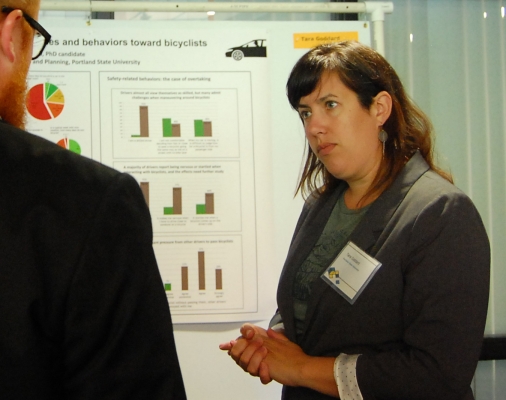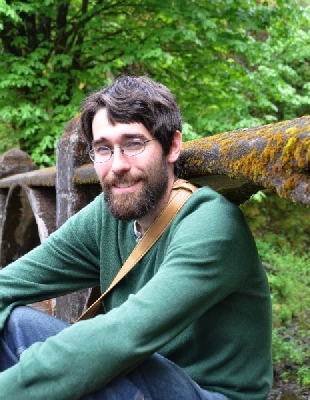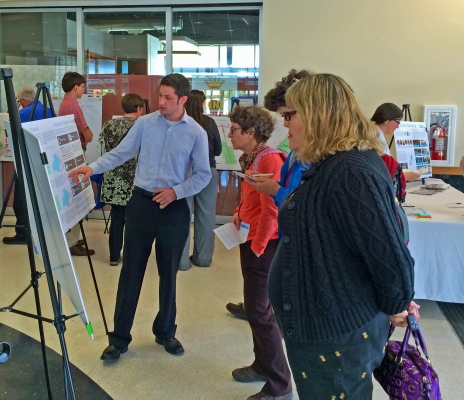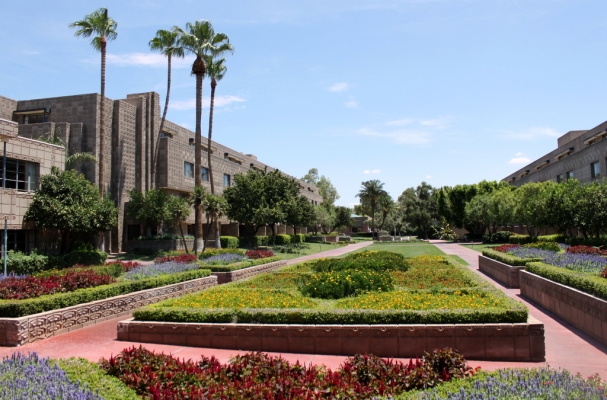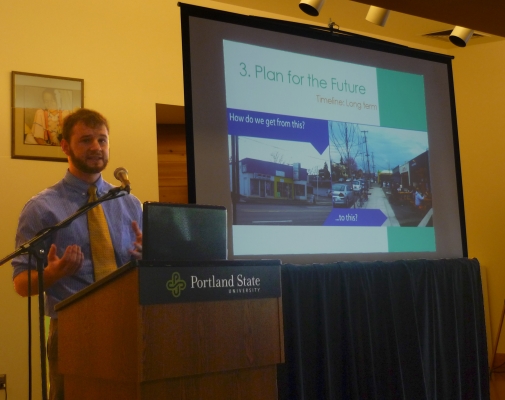Read more of our TRB 2017 coverage here.
Tara Goddard, a doctoral candidate in the Nohad A. Toulan School of Urban Studies and Planning at Portland State University, has been selected as the 2016 NITC university transportation center student of the year.
NITC takes pride in the development of tomorrow’s transportation leaders, involving students in research and supporting student transportation groups.
Goddard is the 11th student of the year since Portland State established its university transportation center in 2006. She is being recognized at the Council of University Transportation Centers 2017 Annual Awards Banquet in Washington, D.C., where she's also attending the Transportation Research Board annual meeting.
Goddard’s dissertation research explores drivers’ attitudes and behaviors toward bicyclists. This reflects her broader interest in the intersectionality between transportation and the social sciences, and how professionals in both disciplines can work together to improve upon public spaces and the ways that people interact within them.
This research focus comes with exciting opportunities for future work, a future which is still being determined: Goddard has applied for academic positions in different parts of the world and is waiting to...
Read more
